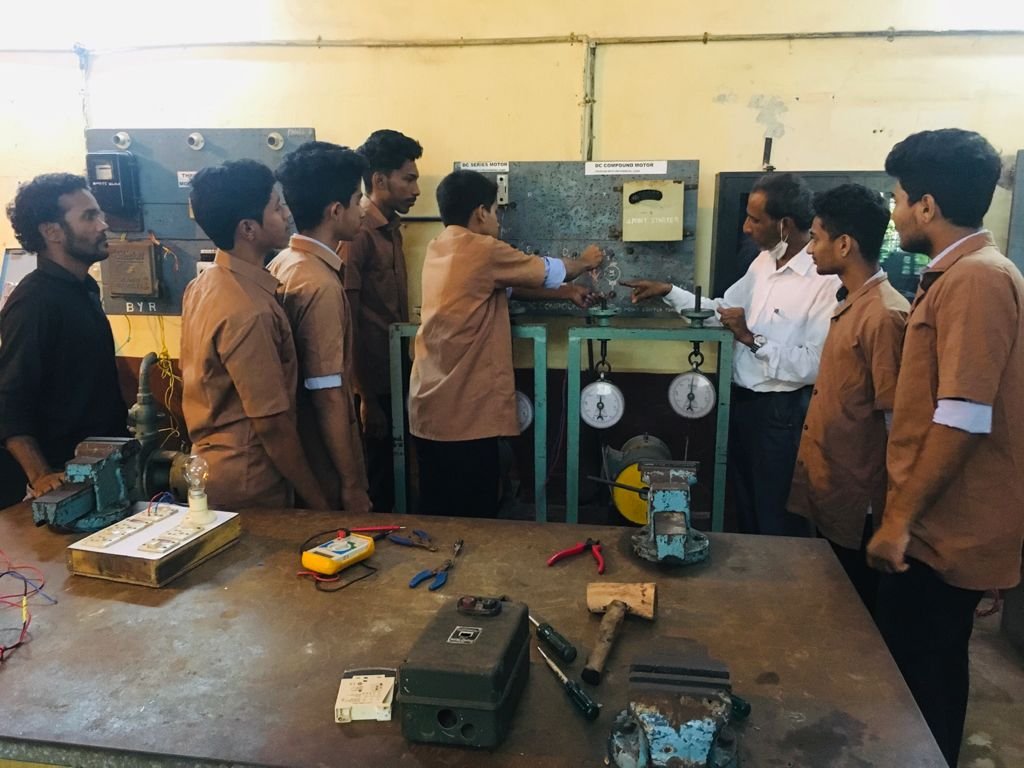One of the most vital mediums for training the young populace with useful practical skills is Industrial Training Institutes (ITIs) in India. These institutes impart vocational skills to students for jobs. With the government of India keen to increase productivity and employment through skill development, ITI courses are ever more relevant.
This guide will take you through everything you would want to know about ITI education in India: popular courses, admission procedure, job options, and much more.
What Is ITI Education? Understanding Industrial Training Institutes
The ITI training is all about skills training targeted toward employment. These are short-term courses that prepare students for practical work, thereby exposing them to the real-world scenario of employment.
Industrial Training Institutes (ITI) are institutions set up under the government as well as under private aegis, concentrating on trades like electrician, mechanic, computer operations, tailoring, and many others.
The best part? You do not have to wait till college. You can join an ITI program right after the 8th, 10th, or 12th and start on your way to building a career.
Who Can Join an ITI? ITI Course Eligibility
Getting into an ITI is simple. Here are the main things you need:
- You must be between 14 to 40 years old.
- You should have passed at least the 8th, 10th, or 12th grade.
- You must be a citizen of India.
Types of ITI Courses: Engineering and Non-Engineering Trades
ITI education in India is divided into two types of courses: Engineering Trades and Non-Engineering Trades.
Engineering Trades
These trades teach technical skills and require good math and science knowledge. Popular trades include:
- Electrician
- Fitter
- Welder
- Refrigeration Technician
- Electronics Mechanic
- Motor Vehicle Mechanic
- Draughtsman (Mechanical & Civil)
Non-Engineering Trades
These focus more on creativity, office work, and services. Some examples are:
- Computer Operator and Programming Assistant (COPA)
- Stenography (English & Hindi)
- Hair and Skin Care
- Housekeeping
- Sewing Technology
- Catering and Hospitality Assistant
How Long Are ITI Courses? Course Duration Explained
ITI courses come in different lengths. The duration depends on the trade you choose:
- Short-Term Trades: Around 6 months
- Standard Trades: 1 year
- Advanced Trades: Up to 2 years
Admission Process for ITI Education in India
Admission is mostly simple and online. Every state has its own official ITI portal. This is generally how it works:
- Fill out the online form on your state’s ITI website.
- Wait for the merit list or the entrance exam result.
- Enter the process of counseling.
- After selection, submit your documents and confirm your seat.
Best ITI Institutes in India to Consider
India has over 15,000 Industrial Training Institutes, including both government and private ones. Here are some top ones:
- Government ITI, Pune
- Government ITI, Bangalore
- ITI Pusa, Delhi
- Government ITI, Tollygunge (Kolkata)
- ITI Berhampur, Odisha

Career After ITI Education: Job and Growth Options
After finishing your ITI course, you’ll have many career options. Let’s explore them one by one.
- Government Jobs for ITI Graduates
Many public sector companies hire ITI students. Some of the top ones are:
- Indian Railways
- BHEL
- NTPC
- DRDO
- GAIL
- ISRO
- Private Sector Jobs
Industries such as automobile, electronics, construction, and hospitality need skilled ITI workers. You can work as:
- Electrician
- Welder
- Machine Operator
- Air Conditioning Mechanic
- Computer Technician
- Apprenticeship Programs
After completing ITI, one can opt to join this Apprenticeship Program under the Apprenticeship Act. As well as earning while learning, gaining skills in an effective method, it adds skills to your resume, making it even more focused.
- Start Your Own Business
Want to work for yourself? Many ITI trades allow you to become self-employed. You can open:
- A repair shop
- A tailoring unit
- A plumbing service
- A salon or beauty parlor
- Study Further After ITI
Yes, you can keep learning! After ITI, you can join:
- A Diploma in Engineering through lateral entry
- Skill development courses in your trade
- ITI to Polytechnic Bridge Courses
Get Certified: National Trade Certificate (NTC)
Once you’ve successfully finished your ITI course with the final exam, you’ll receive the National Trade Certificate (NTC), which is given by the National Council for Vocational Training (NCVT).
The NTC is recognized throughout India and abroad for having imparted skills in your trade.
Why ITI Education in India Is a Smart Career Choice
This is why more students are opting for ITI education:
- You can start it earlier, after class 8 or class 10.
- You learn job-related skills that are useful in the real world.
- Short and low-fee courses are available to complete.
- You become job-ready in one to two years.
- Getting government or private jobs is easy.
- Becoming an entrepreneur is also an option.
- You can also do further studies.
The Future of ITI Education in India
ITI education in India is changing fast. Today’s ITIs are not just about old trades. They now offer training in new areas like:
- Drone Repair
- Electric Vehicle Maintenance
- Solar Panel Installation
- Smart Farming Tools
Conclusion
It imparts the training to get jobs, expand businesses, and continue their education in terms of ITI education in India. Short courses, apprenticeship training, and excellent job opportunities make ITI the right choice for someone who prefers to quickly build a career.
Also Read:iti education.com – Admissions, Career & Opportunities











